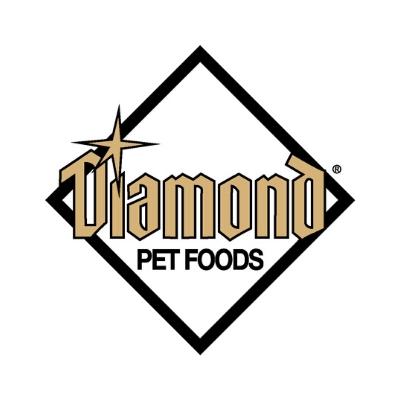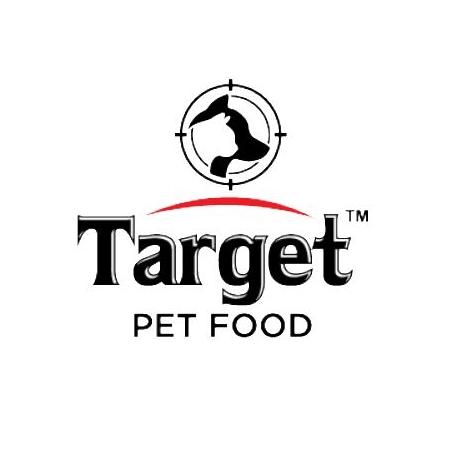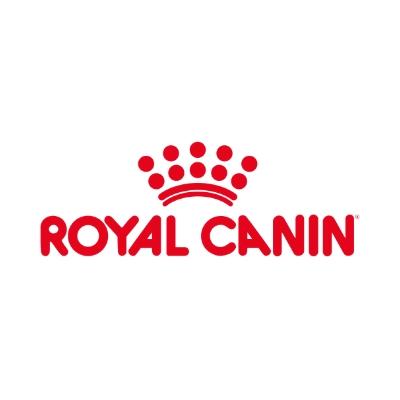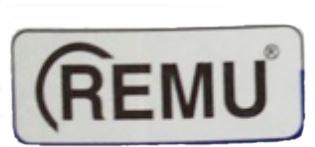Dog Prostate - Enlarged (Benign Prostatic Hyperplasia)
Introduction
Benign prostatic hyperplasia, commonly called "BPH", is a typically non-painful condition that involves symmetrical enlargement of a male dog's prostate gland. "Hyperplasia" is defined as an abnormal increase in the volume or size of a tissue or organ that is caused by the growth of new, normal cells. This is a different physiological process than "hypertrophy," which is an increase in the volume or size of a tissue or organ that is produced entirely by the abnormal enlargement of existing individual cells. Dogs with BPH have larger-than-normal prostate glands because new prostate cells and tissue are being formed.
Causes & Prevention
Causes of Benign Prostatic Hyperplasia
Benign prostatic hyperplasia (BPH) is influenced by sex hormones, especially testosterone, 5-alpha-dihydrotestosterone and estrogen. These hormones are the triggers for formation and growth of new prostate cells, which in turn are responsible for benign enlargement of the prostate gland. In intact (unneutered) male dogs, BPH is also influenced by the natural course of aging. BPH is the most common cause of an enlarged prostate gland in older domestic dogs. This condition is also referred to as prostatomegaly.
BPH typically occurs in two phases, called the glandular phase and the complex phase. The end result is an oversized but symmetrical prostate gland, which sometimes contains small cysts and can potentially become cancerous. The most common type of prostate cancer in dogs is squamous cell carcinoma. Squamous cell carcinoma tends to develop in the prostatic epithelium, which is the lining of the external and internal surfaces of the gland itself.
As the dog's prostate expands over time, it can eventually press on and even obstruct part of the rectum. The rectum is the terminal end of the colon, also known as the large intestine. Over time, this pressure can lead to constipation, straining and difficulty defecating – a condition referred to as "tenesmus". BPH can also lead to the formation of unusually flat or ribbon-like stools, as well as fecal impaction and constipation. Moreover, the enlarged prostate can put abnormal pressure on the urethra, which is the "tube" through which urine leaves the urinary bladder and exits the body through the external genitalia. This can cause additional discomfort, pain and an artificial sense of urgency to urinate.
Prevention of Benign Prostatic Hyperplasia
Neutering juvenile male dogs will almost always prevent the development of benign prostatic hyperplasia, because castration eliminates the hormonal stimulus for enlargement of prostatic cells and tissues. There is no other reliable way to prevent this condition from developing in aging dogs.
Special Notes
In men, BPH can cause urine retention and difficulty urinating. Dogs with BPH do not seem to have these symptoms, although we cannot be sure. When dogs do appear to develop symptoms of difficulty urinating and abnormal urine retention, the cause is more likely attributable to some form of cancer (neoplasia) than to BPH. Some intact males with benign prostatic hyperplasia develop small cysts within their prostate gland. These cysts can be sites for bacterial infection and can develop into puss-filled abscesses. However, they also can be simply incidental findings with no real medical significance.
Symptoms & Signs
How Benign Prostatic Hyperplasia Affects Dogs
Benign prostatic hyperplasia (BPH) usually causes no symptoms in domestic dogs. Even when symptoms do occur, the dog usually is otherwise in good health and is not in a great deal of discomfort or distress. As the prostate gland enlarges in a sexually intact aging male, it eventually may physically press on the rectum (the end of the large intestine) and the urethra (the passageway for urine from the bladder to the outside). This can cause a number of unpleasant symptoms due to mechanical interference with the dog's normal bodily functions and stimulation of nerves that normally are not subject to that pressure.
Symptoms of Benign Prostatic Hyperplasia
As mentioned above, most dogs with BPH show no noticeable signs of their condition. When symptoms do become evident to owners, they typically include one or more of the following:
Blood in the urine (hematuria)
Blood in the ejaculate
Bloody, thick discharge from the urethra (seen at the tip of the penis; not necessarily associated with urination)
Straining or obvious effort to defecate (tenesmus)
Difficulty urinating (dysuria)
Abnormally formed, flat, ribbon-like stools
Infertility or subfertility
Pain (+/-)
Symmetrically enlarged prostate gland (detected by rectal palpation)
Pain (if there is accompanying prostatic abscesses, infection or cancer)
Dogs at Increased Risk
Sexually intact, aging males have a greatly increased risk of developing benign prostatic hyperplasia. Because BPH is largely hormone-dependent, it is almost always seen only in unneutered dogs. BPH can be seen in young adult intact males as early as 1 to 2 years of age. However, the average age of onset is closer to 8 years, depending on the size and breed of the dog. Large and giant breeds have a shorter expected life span than do smaller dogs. As a result, BPH is often detected at a younger age in intact males of the larger breeds. According to experts, roughly 50% of intact male dogs will be affected by BPH by the time they reach 5 years of age, 60% will be affected by 6 years of age, and 95% will be affected by the time they are 9 years old.
Diagnosis & Tests
How Benign Prostatic Hyperplasia is Diagnosed
Enlargement of a male dog's prostate gland is not especially difficult for a veterinarian to diagnose. Careful rectal and abdominal palpation by a skilled veterinarian is the best way to identify an enlarged prostate. Rectal palpation will reveal a symmetrically enlarged prostate gland – called "prostatomegaly" - in intact male dogs that have developed benign prostatic hyperplasia (BPH). However, physically manipulating the prostate gland cannot help the veterinarian determine the cause of the enlargement; in other words, palpation cannot help the veterinarian distinguish between benign prostatic hyperplasia, cystic prostatic disease, prostatic neoplasia (cancer) or bacterial infection and inflammation of the prostate gland (bacterial prostatitis; prostatic abscessation). If the prostate is abnormally large in a neutered male dog, cancer should be on the top of the differential list.
The results of routine blood work (a complete blood count and serum biochemistry profile) on dogs with BPH will typically be normal, unless they have some other unrelated medical disease or disorder. A urinalysis usually will also be unremarkable, but occasionally dogs with BPH may have blood in their urine (hematuria). Pus in the urine (pyuria) and bacteria in the urine (bacteriuria) are usually absent, unless there is a concurrent bacterial urinary tract or prostate gland infection. Dogs with BPH may have clear or pink-tinged prostatic fluid, which can be obtained by ultrasound-guided fine needle aspiration, by manual collection of the third fraction of the ejaculate or by prostatic massage. The fluid sample will be submitted for culture (to see if abnormal microorganisms can be grown) and for cytology (examination of the sample under a microscope). Dogs whose prostate is enlarged only because of BPH will have negative results from these diagnostic tests.
Abdominal radiographs (X-rays) of affected dogs may be recommended, especially if the dog is straining to defecate. Abdominal radiographs taken of a dog with BPH usually will reveal an enlarged prostate gland (prostatomegaly). However, they will not differentiate between the possible causes of the enlargement. Radiographs may also show upward (dorsal) displacement of the colon (large intestine) caused by the space-occupying nature of the enlarged prostate gland. Abdominal ultrasound can likewise reveal an enlarged prostate gland, without suggesting its cause. Cysts in the prostate may be detected on ultrasound, but in dogs with BPH the urethra will typically appear normal. The attending veterinarian may elect to perform an ultrasound-guided fine needle aspirate of prostate tissue. That sample can be submitted to a veterinary diagnostic laboratory for precise evaluation of the presence and cause of any prostatic disease.
Special Notes
A less used but quite advanced diagnostic technique, called retrograde urethrocystography, may be able to reveal a narrowing of the urethra as it passes through the prostate gland in dogs with BPH. This procedure is not yet widely available at local veterinary clinics but may be available at specialized referral centers and veterinary teaching hospitals.
Treatment Options
Treatment Options
In many cases, treatment is not required for dogs with benign prostatic hyperplasia (BPH), especially if the dog is showing no clinical symptoms of discomfort or distress. The goals of treatment are to resolve any clinical signs of the condition, relieve any discomfort and restore the dog's pain-free quality of life.
Dogs with BPH that show no signs of their condition typically do not require treatment. The most effective treatment for BPH – indeed, the best way to prevent it in the first place – is to neuter (castrate) male dogs. Castration is completely curative and is far more effective than any pharmacological treatment. The surgery should be delayed in dogs that have both BPH and a bacterial prostate or urinary tract infection, until the infection is resolved.
If the owner is not willing to neuter his or her dog, there are some prescription medications that can temporarily shrink the prostate gland, with the goal being to relieve the dog's discomfort. Owners should discuss these drugs with their veterinarians, as they can have some undesirable side effects. Drugs only provide temporary relief and may adversely affect the dog's fertility, which owners should realize if they are not neutering their male dog because they intend to use him as part of a breeding program. Prolonged use of some of these drugs may also predispose the dog to developing diabetes mellitus and/or adrenal gland disorders.
Prognosis
Intact males that develop benign prostatic hyperplasia have an excellent prognosis following castration. That simple surgical procedure will cause rapid shrinkage (involution) of the prostate gland within a matter of days, and will quickly relieve any discomfort that the dog has been suffering as a result of its condition. Within roughly 4 weeks after neutering, the dog's symptoms should be completely resolved. Dogs with BPH who are not neutered but are treated with drug therapy may improve temporarily, but their symptoms usually will return after their drug therapy ends.
















































